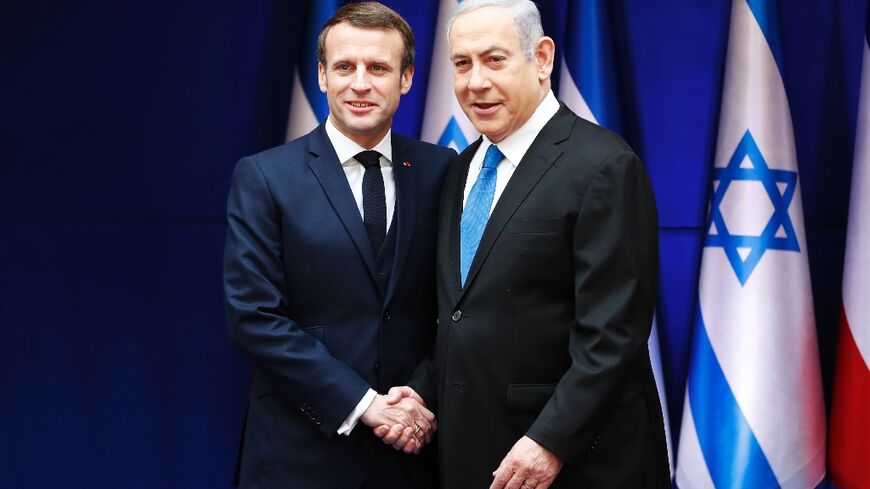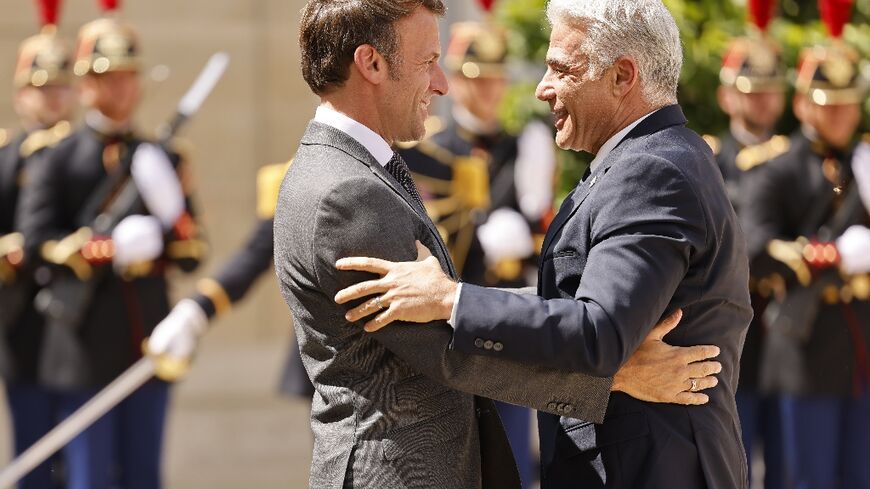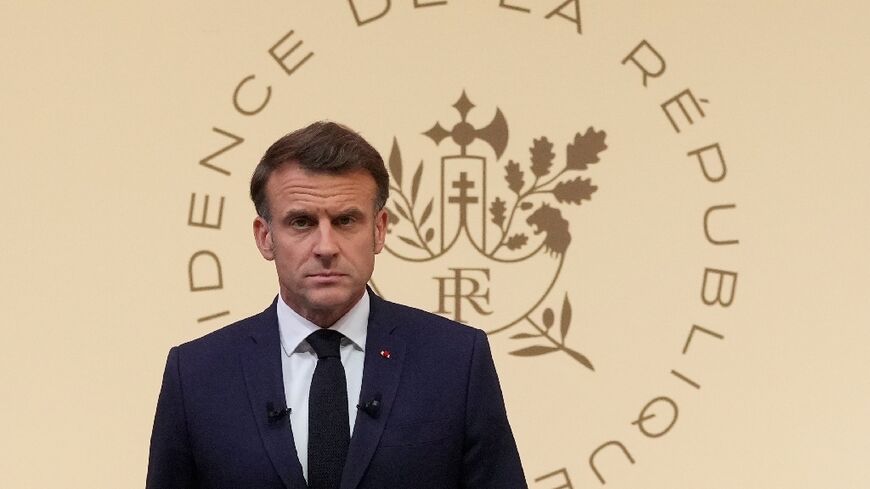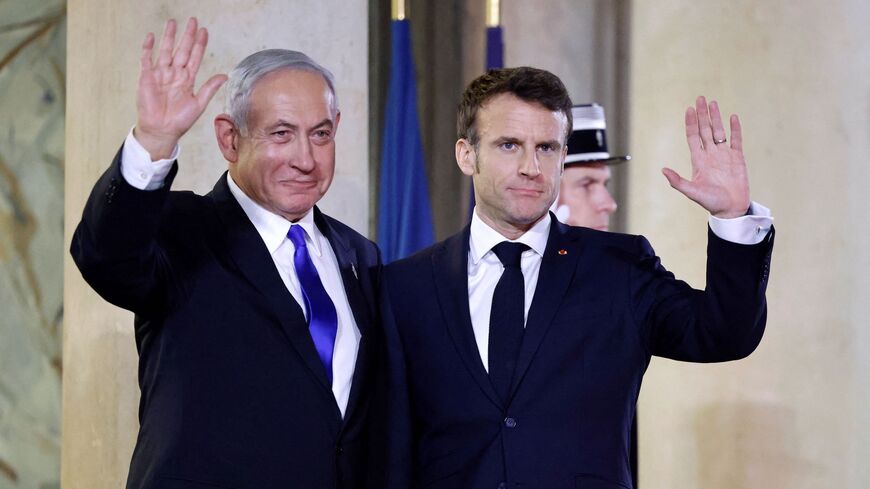After Netanyahu talks, Macron warns of Iran nuclear 'consequences'
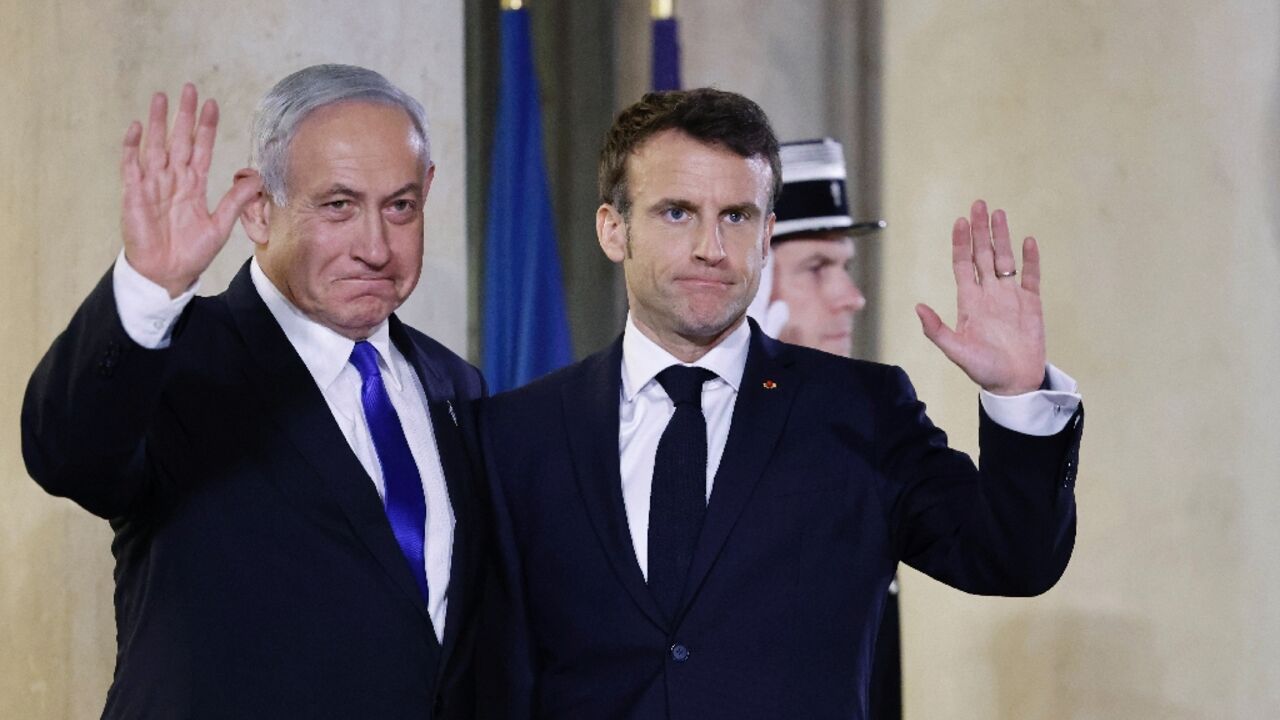
French President Emmanuel Macron on Thursday denounced the "headlong rush" of Iran's nuclear programme after talks with Israeli Prime Minister Benjamin Netanyahu, who was in Paris to seek a stronger European stance against Tehran.
In a statement released after a dinner meeting in the Elysee Palace, Macron warned that Tehran continuing with the atomic project "would inevitably have consequences".
Both leaders discussed ways to counter "the Iranian nuclear threat" and Netanyahu stressed the need for more "deterrence against Iran and its proxies in the Middle East", the Israeli embassy said.
Israel has long accused Iran of seeking a nuclear weapon but Tehran insists its nuclear programme is aimed solely at generating energy.
Netanyahu hopes Iran's role in supplying drones to Russian invaders in Ukraine, as well as its crackdown on protests at home, will prompt Western allies to drop any bid to revive a 2015 atomic programme deal.
The prime minister has also said Israel is considering sending military aid to Ukraine, apparently dropping its more neutral stance over the conflict in the hope of securing a more confrontational Western position towards Tehran.
- 'Playing the Ukraine card' -
By "playing the Ukraine card", Netanyahu hopes to "consolidate an anti-Iranian front" with the West, said David Khalfa at the Fondation Jean Jaures, a Paris-based think tank.
He hopes for "increased sanctions against Iran and the full addition of the Revolutionary Guards to the list" of sanctioned entities, a step France and Germany have so far resisted, Khalfa added.
During his meeting with Macron, Netanyahu urged "substantial sanctions to be imposed on the Iran regime and called for the Revolutionary Guards to be added to the European Union's terror list", the Israeli embassy said.
France agrees that "firmness" is needed in dealings with Iran, a diplomatic source told AFP earlier, saying the nuclear programme had reached "a dangerous point" and highlighting Tehran's role in the Ukraine war.
Siding with Ukraine is not without risk for Netanyahu, as Russian air defences in neighbouring Syria could be turned against Israeli aircraft during their occasional raids on Iranian interests there.
Iran also holds several foreign citizens who are considered political hostages by Western governments.
Netanyahu's visit came after a weekend drone attack on a defence ministry facility in the Iranian city of Isfahan, which Tehran has blamed on Israel.
The New York Times and The Wall Street Journal, citing unnamed officials, have said the attack was carried out by Israel's Mossad intelligence agency, though this has not been confirmed by Israel.
- Tensions mount -
Netanyahu's visit came as violence intensified between Israelis and Palestinians with Israeli war planes striking the Gaza Strip early Thursday, drawing Palestinian rocket fire in retaliation.
Last Friday, a Palestinian gunman shot dead seven people outside a synagogue in an Israeli settler neighbourhood of annexed east Jerusalem.
It was the deadliest attack targeting Israeli civilians in more than a decade, and came one day after an Israeli raid in the West Bank killed 10 Palestinians.
Macron on Thursday reiterated "the importance of avoiding any measure that could feed the cycle of violence" between Israelis and Palestinians, while offering "France's complete solidarity with Israel in its fight against terrorism, the French presidency said.
Staying in France until Saturday, Netanyahu is also set to meet French business chiefs and leaders of the country's Jewish community, the Israeli embassy said.
Judicial reforms planned by the prime minister's latest coalition of right-wing, far-right and ultra-Orthodox Jewish parties have raised the hackles of some business executives, notably in the financial sector, who have threatened to quit Israel.


